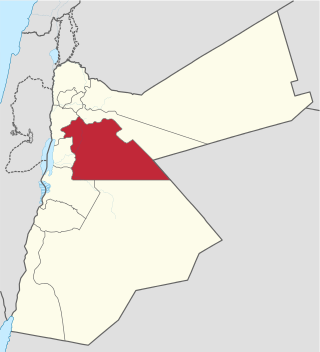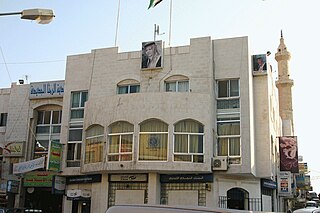
The Dead Sea Scrolls, also called the Qumran Caves Scrolls, are a set of ancient Jewish manuscripts from the Second Temple period. They were discovered over a period of 10 years, between 1946 and 1956, at the Qumran Caves near Ein Feshkha in the West Bank, on the northern shore of the Dead Sea. Dating from the 3rd century BCE to the 1st century CE, the Dead Sea Scrolls include the oldest surviving manuscripts of entire books later included in the biblical canons, along with extra-biblical and deuterocanonical manuscripts from late Second Temple Judaism. At the same time, they cast new light on the emergence of Christianity and of Rabbinic Judaism. Almost all of the 15,000 scrolls and scroll fragments are held in the Shrine of the Book at the Israel Museum, located in the city of Jerusalem. The Israeli government's custody of the Dead Sea Scrolls is disputed by Jordan and the Palestinian Authority on territorial, legal, and humanitarian grounds—they were mostly discovered following the Jordanian annexation of the West Bank and were acquired by Israel after Jordan lost the 1967 Arab–Israeli War—whilst Israel's claims are primarily based on historical and religious grounds, given their significance in Jewish history and in the heritage of Judaism.
Royal Jordanian Airlines is the flag carrier of Jordan with its head office in the capital, Amman. The airline operates scheduled international services over four continents from its main base at Queen Alia International Airport, with over 500 flights per week and at least 110 daily departures. It joined the Oneworld airline alliance in 2007.

Jordan is divided into twelve historical regions, further subdivided into districts (liwa), and often into sub-districts (qada).

The Rockefeller Archeological Museum, formerly the Palestine Archaeological Museum, is an archaeology museum located in East Jerusalem, next to Herod's Gate, that houses a large collection of artifacts unearthed in the excavations conducted in the British-ruled Mandatory Palestine, mainly in the 1920s and 1930s.

Qusayr 'Amra or Quseir Amra, sometimes also named Qasr Amra, is the best-known of the desert castles located in present-day eastern Jordan. It was built some time between 723 and 743, by Walid Ibn Yazid, the future Umayyad caliph Walid II, whose dominance of the region was rising at the time. It is considered one of the most important examples of early Islamic art and architecture.

The Amman International Stadium is a stadium in Al-Hussein City, Amman, Jordan. It was built in 1964 and opened in 1968. It is owned by the Government of Jordan and operated by the Higher Council of Youth. It is also the home stadium of the Jordan national football team and Al-Faisaly SC. It has a current capacity of 17,619 spectators.

Ma'an is one of the governorates of Jordan, it is located south of Amman, Jordan's capital. Its capital is the city of Ma'an. This governorate is the largest in the kingdom of Jordan by area.

Amman Governorate, officially known as Muhafazat al-Asima, is one of the governorates in Jordan. The governorate's capital is the city of Amman, which is also the country's capital. The administrative center of the governorate as well as all government offices and parliament are located in the Abdali district.

Jerash Governorate is one of 12 governorates in Jordan. It is located in the northwestern side of the country. The capital of the governorate is the city of Jerash.

Karak is one of the governorates of Jordan, located south-west of Amman, Jordan's capital. Its capital is Al-Karak. It s bordered by Madaba and the Capital governorates to the north, Ma'an Governorate to the east, Tafilah Governorate to the south, and the Dead Sea to the west.

Ar-Ramtha, colloquially transliterated as Ar-Romtha, is a city situated in the far northwest of Jordan near the border with Syria. It covers 40 km2 on a plain 30 km northeast of the Jordan River and Irbid. In 2017, Ar-Ramtha had a population of approximately 164,211, making it the eleventh largest city in Jordan, and the second in Irbid Governorate, and the city has grown since then. It is part of the Ar-Ramtha district of the Irbid Governorate.

Sharqawi Abdu Ali al-Hajj, also known as Riyadh the Facilitator, is a Yemeni alleged Al-Qaeda associate who is currently being held in the United States' Guantanamo Bay detention camps, in Cuba. He is accused of being a 'senior al-Qaida facilitator who swore an oath of allegiance to and personally recruited bodyguards for Osama Bin Laden.
Rugby union is a minor, but developing sport in Jordan.
Fawwaz Ahmad Tuqan is a Joardanian-Palestinian poet, novelist and professor. He was born on 6 September 1940 to a Palestinian family in Jerusalem. His father is Ahmad Abdul Fattah Tuqan, a former Prime Minister of Jordan.
The Middle Eastern Geodatabase for Antiquities (MEGA) is a web based geographic information system or GIS developed by the Getty Conservation Institute (GCI), with matching funds from the World Monuments Fund (WMF) and in partnership with the Jordanian Department of Antiquities (DoA). The GIS will serve as the primary tool for the Jordanian DoA in its ongoing work to inventory, monitor, and manage Jordan's vast number of archaeological sites.

The Jordanian protests were a series of protests in Jordan that began in January 2011, and resulted in the firing of the cabinet ministers of the government. In its early phase, protests in Jordan were initially against unemployment, inflation, corruption. along with demanding for real constitutional monarchy and electoral reforms.
Jadis is the name of the White Witch in C. S. Lewis's Narnia Chronicles.
The Department of Antiquities is a government department in the Hashemite Kingdom of Jordan with responsibility for archaeological research and cultural heritage management. It is part of the Ministry of Tourism and Antiquities.
Khirbet es-Sar is an archaeological site in Jordan. It lies in the western suburb of modern Amman, on the edge of a plateau. In the MEGA Jordan database, which stores information about sites located in Jordan, Khirbet es-Sar can be found under numbers 11304 and 3007.
Data diplomacy can be defined in two different ways: use of data as a means and tool to conduct national diplomacy, or the use of diplomatic actions and skills of various stakeholders to enable and facilitate data access, understanding, and use. Data can help and influence many aspects of the diplomatic process, such as information gathering, negotiations, consular services, humanitarian response and foreign policy development. The second kind of data diplomacy challenges traditional models of diplomacy and can be conducted without tracks and diplomats. Drivers of change in diplomacy are also emerging from industry, academia and directly from the public.












